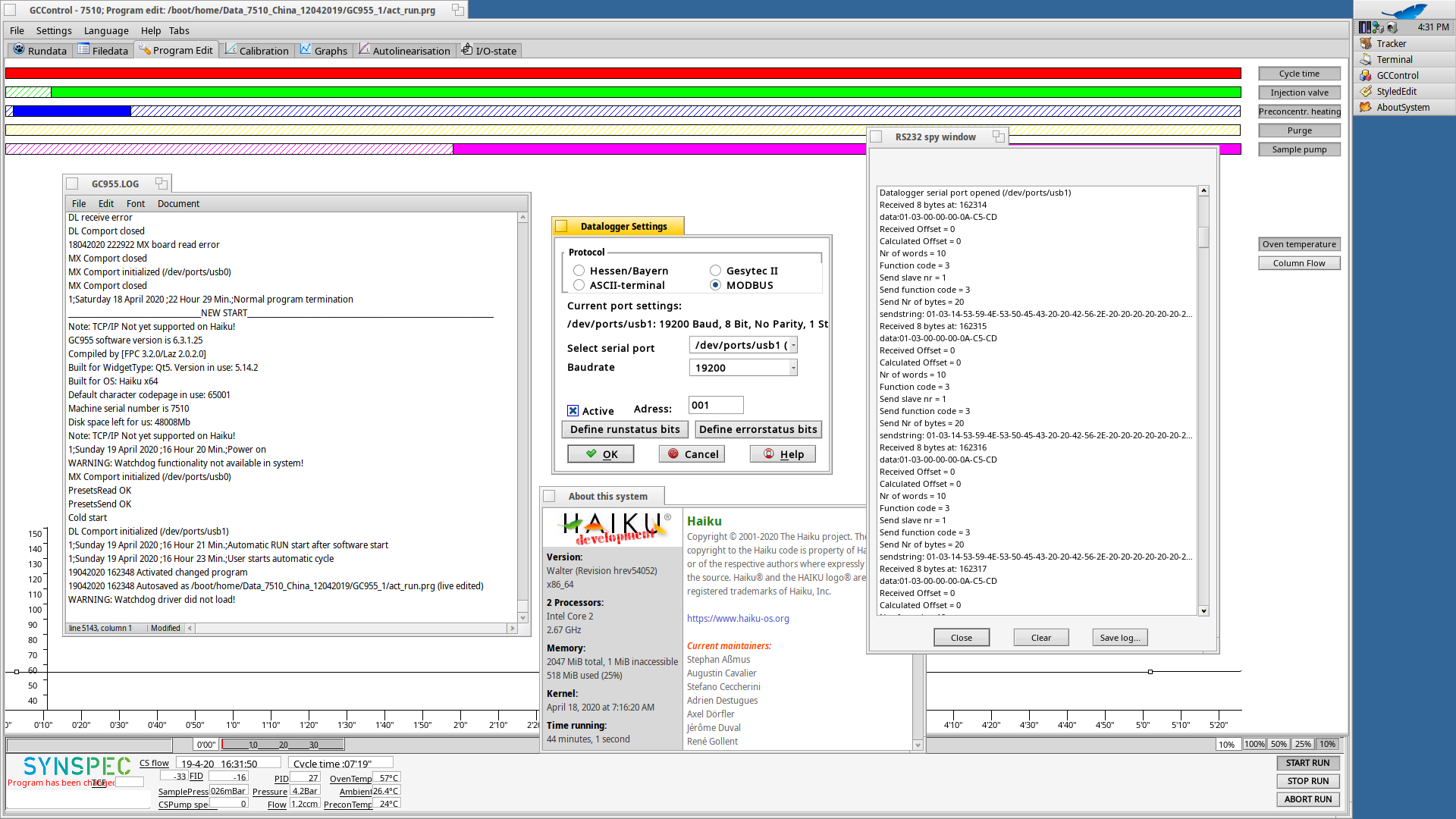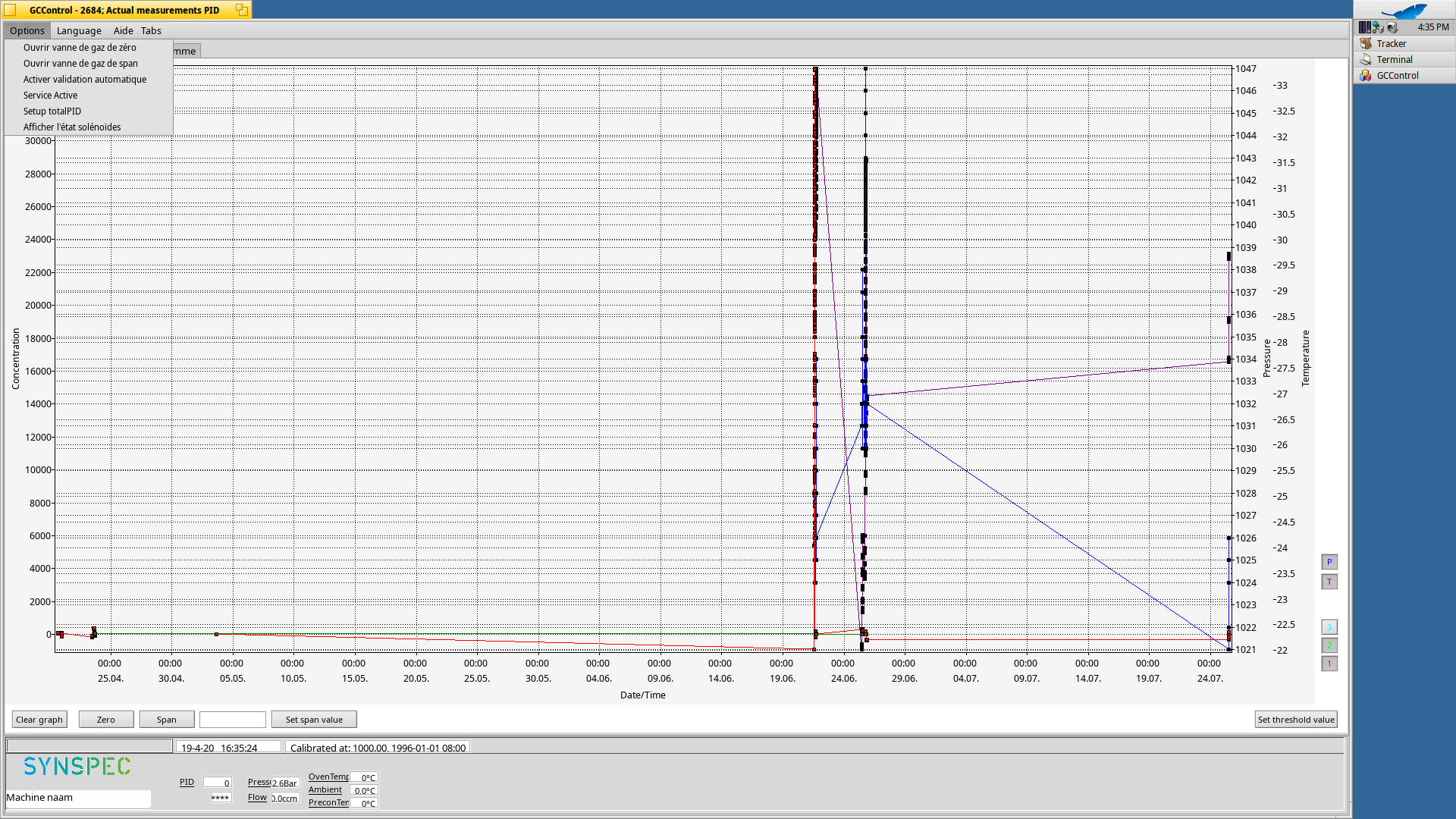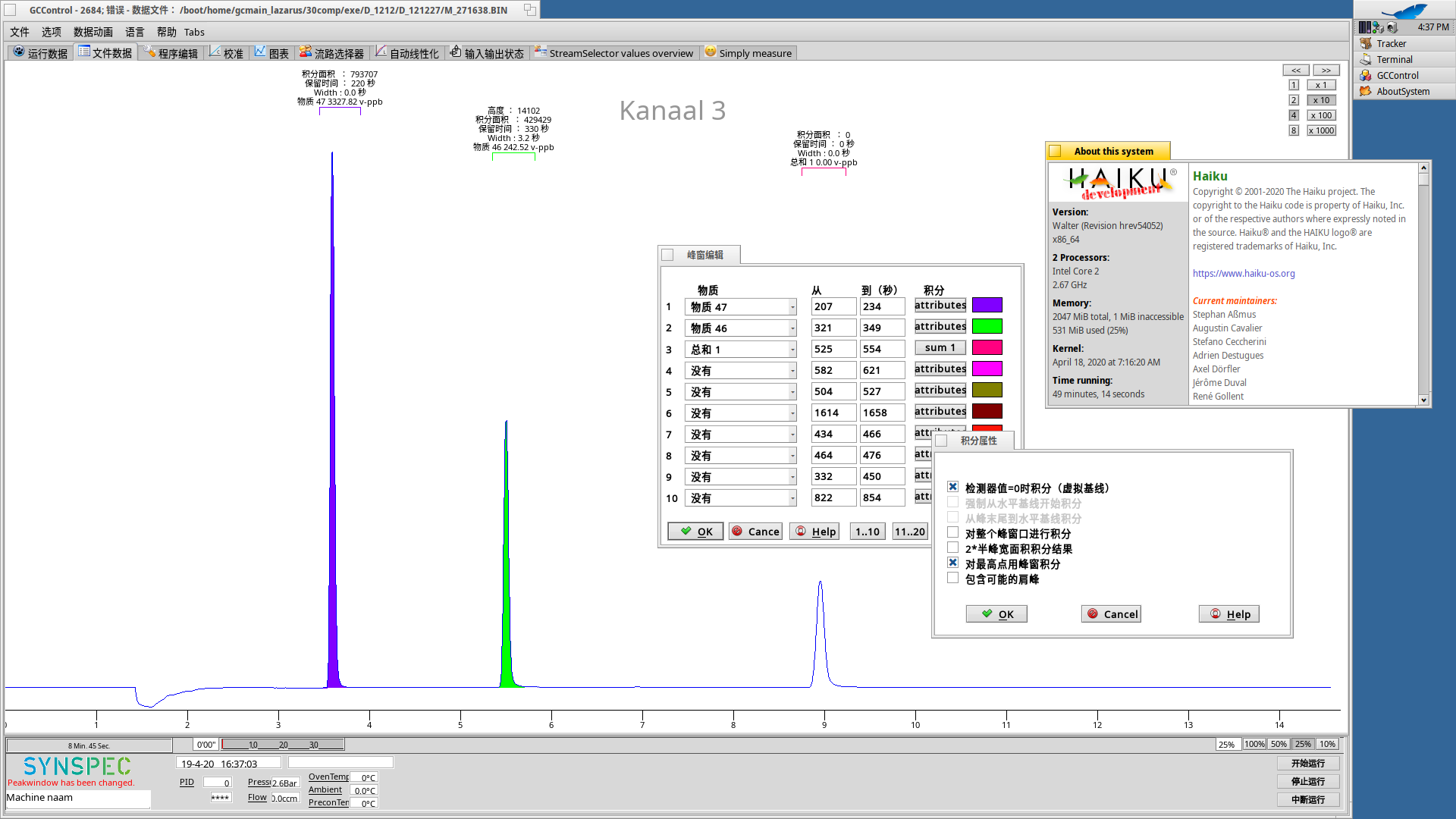All in all results are promising. The application is fully functional apart from a few things:
- Serial or USB-serial port flush/purge due to outdated termio.inc and termioproc.inc in Lazarus/FPC. I use adapted Synaser to succesfully use both hardware serial and usb serial connections apart from purge/flush yet. Serial and serial USB would not work at all without my patches BTW;
- TCP/IP not up yet (Indy 10 issues);
- Missing hardware watchdog support. I have it running on Linux ARM/Intel via the existing subsystem there by directly loading the driver (posix), on Windows x86/x64 (XP…Windows 10) I have written my own drivers which work nicely also (via a specially written/maintained DLL for this purpose). Would be cool if Haiku would have the linux watchdog subsystem… (watchdog is used to reboot system in case the software malfunctions, in order to guarantee ‘up-time’ of the software/hardware.
As it is now things are good enough to use Haiku for a ‘service USB stick’ for clients. There might be a small chance we’ll use this in some occasions in the (nearer) future. It’s not good enough (mainly due to the missing ‘features’) to use on a day to day basis.
Still, Haiku has evolved -very- nicely over the years (remember, I’m here since ‘day one’: my first drivers were created when Be was still around…  )
)
Anyhow, posting three more screenshots in which you can see that I have a industry standard communication protocol running (MODBUS) with another computer, we are able to use for instance simplified Chinese as running language (though I still did not complete all translations: we support nine languages, via an app-internal system). Nice to know is that I can plug/unplug USB adapters on-the-fly, and the software will just re-detect them and restart all communications without user intervention. Also maintaining a list of free and ‘in use’ serial and serial-USB ports is working nicely…
On one of the shots you see TAChart working very nice (though the data is a mess, really  )
)
Really, really looking good I think!
Oh, BTW: The executable is around 20-21Mbytes in size. On ARM linux its about 10Mb, on Windows around 5-6Mbytes.


